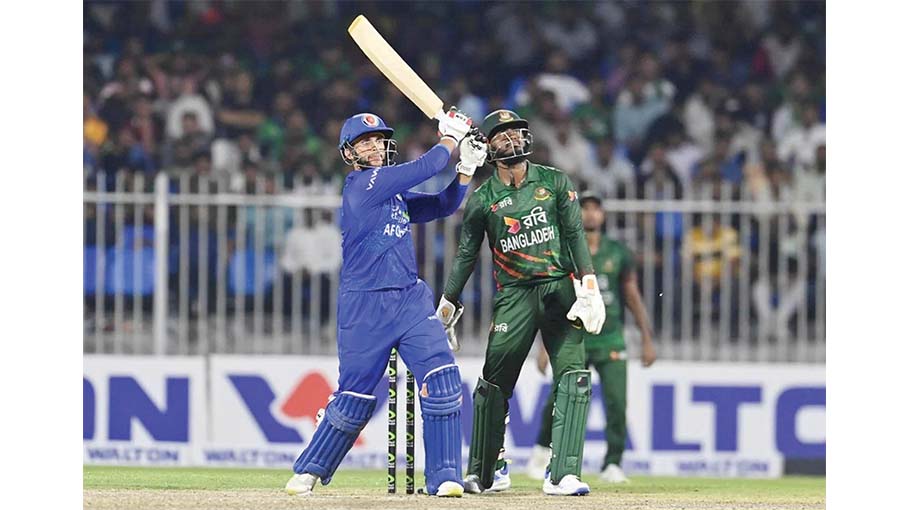Toothless Tigers lose series to Afghans


Bangladesh entered the ODI series against Afghanistan with confidence, buoyed by their past record and the Sharjah wicket, which was not a 300-run pitch but one where a score around 250 could lead to a competitive match. Despite this, the series ended in a shambolic 2-1 defeat for Bangladesh. What went wrong?
In the first match, Afghanistan was bowled out for 235, with Taskin Ahmed and Mustafizur Rahman each taking four wickets. The bowlers did their job, but leg-spinner Rishad Hossain was expensive, conceding 46 runs in 8 overs without taking a wicket. Chasing 235, Bangladesh was well-placed at 120 for 2 but collapsed to 148 all out, losing 8 wickets for just 23 runs. While Ghazanfar's six wickets were impressive, Bangladesh's batsmen, including Mahmudullah and Mushfiqur, gave away their wickets too easily.
In the third match, Bangladesh was 73 for 4 after 15 overs and reached 166 for 4 after 40 overs, scoring only 93 runs in those 25 overs. On Sharjah's wicket, a score of 260 could have been achievable with a bit more aggression. In the second match, Bangladesh was 152 for 2 but lost 6 wickets for 32 runs, collapsing to 184 all out. Tawhid Hridoy's poor form was a significant factor, scoring only 11, 11, and 7 in the series. Openers like Soumya Sarkar started well but failed to convert their starts into big scores. Tanzid's performance was also disappointing, with an average of just 18 in 18 matches. Rahmanullah Gurbaz, on the other hand, capitalised on multiple chances to score his eighth century, highlighting Bangladesh's poor fielding. While the bowlers did not allow Afghanistan to post huge totals, the batting collapses were the main issue. There were positives, such as pacer Nahid Rana's debut performance, taking 2 wickets for 40 runs and bowling at 151 km/h. Mehidy Hasan Miraz batted at number four in all three matches, showing potential with scores of 28, 22, and 66.
The series loss points to potential strategic and tactical flaws. Whether it was the batting order, field placements, or bowling changes, the decisions made did not yield the desired results. This calls for a reassessment of the team’s approach and strategies.
The series loss to Afghanistan should also be a wake-up call for Bangladesh cricket. It underscores the need for introspection, better preparation, and addressing the never-ending weaknesses.




